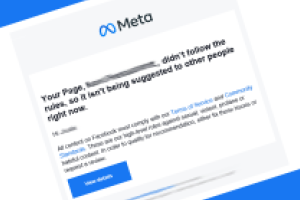Although the California Consumer Privacy Act (CCPA) went into effect on January 1st, it’s never too late to ensure your business is compliant with its slew of new regulations. For the sake of your business, it’s imperative you discover the ways the CCPA will affect your company and the hefty fines involved if you are found in violation. If you read our last blog, What is the California Consumer Privacy Act?, then you already know, regardless of your location, how your business is affected. With that information, you can take steps to avoid penalties and fines by preparing your business to keep in compliance with the CCPA.
How Does the CCPA Affect My Business?
As if the effort poured into e-commerce and email marketing didn’t keep you busy enough – what with all that goes into building and maintaining your website and creating personalized content – now you have a whole new set of rules to follow. It’s important to consider that even if you don’t do business in California, you will likely do business with California residents through forms, emails, and online purchases. Thus, the first thing you will be required to do is amend your privacy policy by doing the following:
- Provide an explanation of the consumer’s rights according to the CCPA.
- Identify the types of personal information you collect through your website or online service.
- Explain the purpose of the data collection and categorize third parties with whom you’ve shared the information.
- Describe the process by which a consumer can request their information be deleted and opt-out of further data collection.
- Indicate how you notify consumers of changes to your privacy policy.
- Disclose financial incentives offered in exchange for retaining a consumer’s information.
For more information about complying with previously existing California law, visit California Legislative Information’s website, and for information on the CCPA’s obligations, visit the State of California Department of Justice’s website.
What Penalties Can the CCPA Invoke?
It’s better to be thorough with your explanations in your privacy policy, as violating any of the provisions set forth by the act can result in an injunction and heavy fines in the order of $2,500 for each civil violation and $7,500 for each intentional violation – not to mention the risk for civil action. Furthermore, in the event of theft or unwarranted broadcast of private data, you can be subject to fines up to $750 per victim. To learn more about your responsibilities under the CCPA and its fines, visit the American Bar Association’s website.
How Can I Ensure My Business is Protected?
This act has snuck up on many businesses outside of California. It is especially important for those businesses that fall under the criteria explained in our previous blog to reform their practices, as the CCPA came into effect on January 1st. But fret not, as you may invoke the phrase “better late than never,” as a violation can lead to serious financial and reputational repercussions. To safeguard your company, there are several steps you can take to guarantee compliance with the CCPA:
- Include an opt-in form with any email marketing campaigns or e-commerce transactions.
- Avoid mishaps by assuming everyone is covered by the new law, not just Californians.
- Review your third-party contracts to ensure you’re both in compliance with the CCPA.
- Inform your employees of the regulation changes and outline their responsibilities.
- Create a list of those responsible for consumer information databases and policy manuals.
Keeping in compliance with the CCPA is essential to safeguarding the longevity of your business. But while implementing changes to your business in the wake of the CCPA, it can be easy to lose sight of other vital company practices such as your marketing. Fortunately, in addition to more than 20 years creating effective marketing strategies and social media campaigns, Vision’s consultation services can provide you with relevant knowledge of data collection and compliance to protect your company from disaster. Contact us today to get your business up to speed with current legislation.




